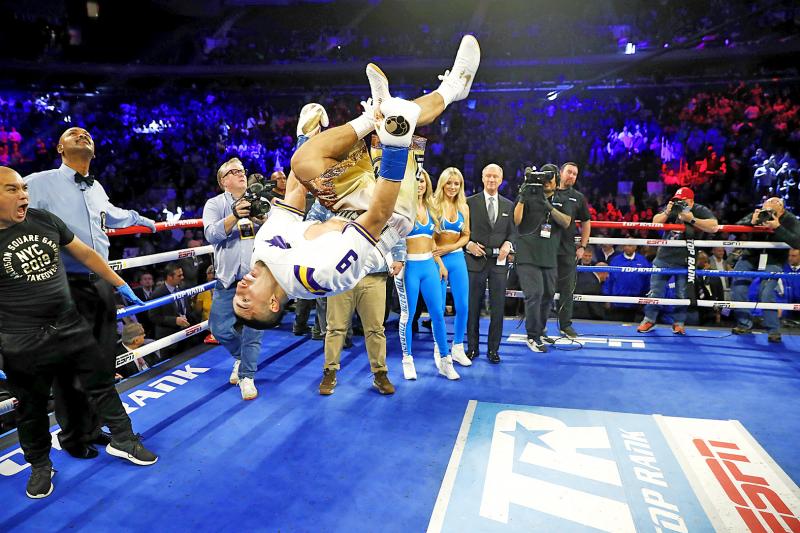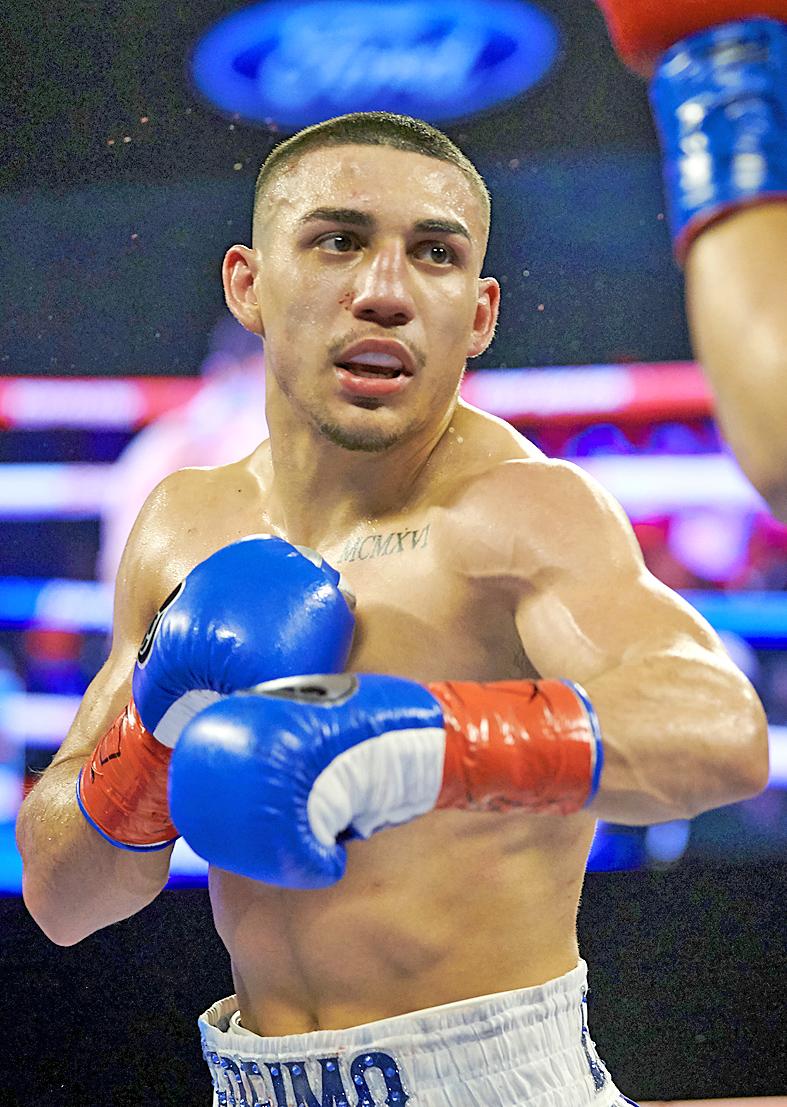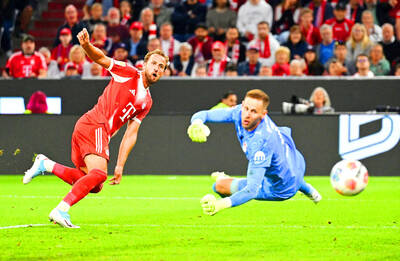It would have been just another Saturday night until Faridd Sierra received a telephone call from his brother: Come over. A fellow Honduran American is fighting for a unified boxing lightweight championship.
The 39-year-old from Dallas had not heard of Brooklyn-born boxer Teofimo Lopez until that call.
By the 12th round of the fight between Lopez and Ukrainian Vasiliy Lomachenko, Sierra and his brother were on their feet, cheering on the 23-year-old fighter to make history. He did.

Photo: AP
Across the US and Central America, Hondurans and Honduran Americans took to social media to express pride, excitement and emotion over the improbable victory by Lopez over the best boxing technician in the world.
The son of Honduran immigrants walked into the ring to a Biggie Smalls hip hop sample with swagger and walked out with multiple championship belts.
Lopez (16-0) added the three titles held by Lomachenko (15-2) to the belt he won last year to become the undisputed 135 pound (61kg) champion following a unanimous 12-round decision.

Photo: AP
“I had to dig deep, man,” Lopez said after his win. “I’m thankful. I’m grateful. And each and every day I take that in ... and now, it feels good.”
The victory came for Honduran Americans after years of watching Honduran and Central American migrants fleeing violence only to end up in detention centers in the US and Mexico.
Images of migrant children in cages and stories about migrant children being separated from family have only added to the anxieties and fears, said Patricia Montes, a Honduran immigrant activist living in Boston.
“It feels sometimes people don’t even see us as human,” Montes said. “But now we have a champion and it tells us we can do anything.”
Ceasar Avelar, a dairy factory worker who lives in Pomona, California, and whose mother is Honduran and father is from El Salvador, immediately texted relatives as soon as Lopez won.
“The dude looks like my brother,” the 37-year-old Avelar said. “This is a jolt. It’s kind of like looking in the mirror, and for the first time, seeing ourselves for real.”
Avelar, an aspiring poet who is working with writer Matt Sedillo, said that Lopez inspired him to keep reaching for his dream.
“This is a new beginning, man,” he said.
Rudy Mondragon, a University of California, Los Angeles Chicana and Chicano Studies doctoral candidate who is researching boxing, said that the sport has long served as a gateway for immigrants and marginalized communities in the US.
Joe Louis served as an inspiration for African Americans during the 1930s and 1940s, while Mexican-American fighters Raul Rojas, Oscar de La Hoya, and Andy Ruiz, sparked similar enthusiasm for Mexican Americans during their time, Mondragon said.
“Like Johnny Tapia [the former bantamweight champion from Albuquerque, New Mexico], Teofimo Lopez is a disrupter,” Mondragon said. “Except he’s breaking all the stereotypes about what Central American athletes, especially those from Honduras, can do. He’s changing the status quo.”
Even the Lopez social media hashtag, #TheTakeover, is a source of Central American pride in the US, as it sends a message that there is a new population coming to fight for what they want, Mondragon said.
Only a handful of Central American athletes have generated such excitement as Lopez in the past few years.
San Francisco Giants shortstop Mauricio Dubon, who was born in Honduras, has a following and frequently pays homage to the land of his birth. Former boxing champion Roberto Duran of Panama generated fans during a career that spanned into five decades.
Salvadoran-American boxer Carlos “El Famoso” Hernandez won the IBF World Super Feather Title in 2003, making his own history.
After the fight, Lopez’s father said they intended to build boxing gyms in Honduras.
Sierra, who works at the substance abuse prevention nonprofit Youth180, said that he intends to share the Lopez story with his students and believes it will also inspire them.
“This didn’t hit me until I saw celebrities like Magic Johnson and Manny Pacquiao tweeting congratulations,” Sierra said. “This is just the beginning.”

Kylian Mbappe struck from the penalty spot as Real Madrid beat a dogged CA Osasuna 1-0 on Tuesday to make a winning start in Spanish La Liga under new coach Xabi Alonso. The France striker, last season’s European Golden Shoe winner, scored early in the second half, after he was fouled in the area by Osasuna defender Juan Cruz. It was enough to seal the points in Alonso’s first game in charge at the Santiago Bernabeu, with Madrid now unbeaten in their opening fixture of a league campaign since 2008. “You can see that Kylian wants to do even more

‘CATASTROPHE’: Despite losing several key forwards in the summer transfer window, Bayern were up 3-0 in the first half before Harry Kane scored a hat-trick in the second Harry Kane hit a hat-trick, Michael Olise a double and newcomer Luis Diaz also scored as Bayern Munich made a “statement” against RB Leipzig 6-0 at home in the Bundesliga season opener on Friday. Bayern’s big-money arrivals, all brought in from the Premier League across the past three seasons, were dominant as the Bavarians begun their title defense in style. Olise scored twice in the first half, either side of a Diaz strike. Not to be outdone, Kane scored three goals in the second half — with two assists coming from Diaz, to bring Bayern’s total to 6-0. Kane told the Bundesliga

Kevin de Bruyne is to lead SSC Napoli’s Serie A title defense today when he makes his full debut at promoted US Sassuolo, but the champions head into the new season rocked by a long-term injury to star striker Romelu Lukaku. De Bruyne was, alongside aging icon Luka Modric, the big new name to arrive in Italy this summer and fans were hoping his linkup with Belgium teammate Lukaku would push Napoli to success both at home and in their return to the UEFA Champions League. The 34-year-old has suffered from hamstring injuries which caused him to miss significant chunks of the

FIGHTBACK: Taiwan’s Chan Hao-ching and Jiang Xinyu of China rallied from a set down to advance to the final of the women’s doubles at the Tennis in the Land Russian second seed Ekaterina Alexandrova on Thursday beat defending champion Linda Noskova 7-6 (7/5), 4-6, 6-2 at the Monterrey Open to secure her place in the semi-finals of the US Open tune-up event. Alexandrova, 14th in the world rankings, started the decider brightly after two tightly contested sets and while Czech Noskova fought back to level at 2-2, the Russian regained control to seal the victory in just over two hours at the WTA 500 event. “I’m really glad that I could make it through, even in three sets, because it was difficult today — she served so well, she hit so